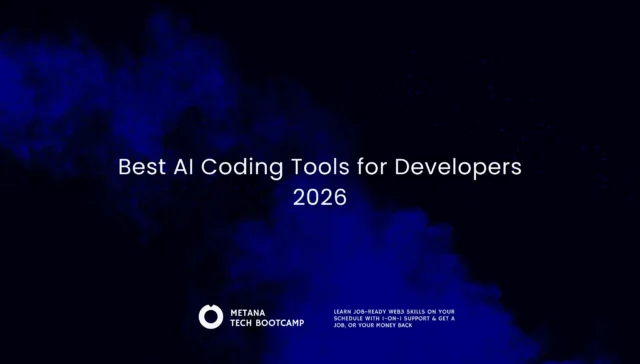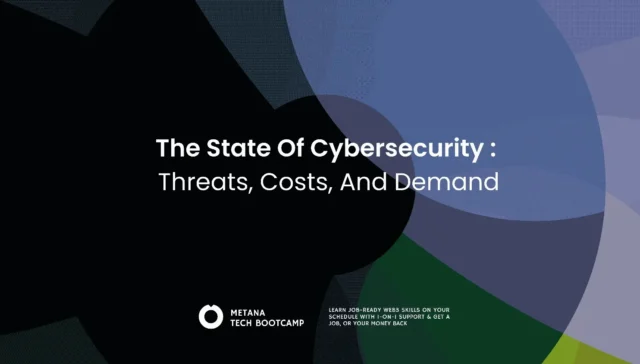The role of a full stack developer is often seen as a great opportunity, promising the mastery of both front end and back end technologies. The most frequent opinion about this role is that it will make your dream a reality of getting into a fulfilling and sophisticated career in tech. Many desired developers are captivated by the idea of becoming the “jack-of-all-trades” in technology, who has the capability to address any challenge and fluidity moving between client and server-side programming. In this article let’s talk about the expectation vs reality of being a full stack developer.
The Shimmering Expectations
The full stack developer’s journey often begins with high hopes. There’s an appealing thought of gaining expertise in a wide array of technologies, from HTML, CSS, and JavaScript for the front-end to server-side languages like Python, Ruby, or Node.js. The ability to handle both databases and user interfaces suggests a powerful control over the entire spectrum of a project, enhancing job prospects and creative freedom.
The Grounded Reality
However, the practical experiences of full stack developers reveal a more fine picture. This career path is a continuous adventure in learning and adaptation. The technology landscape evolves rapidly, requiring developers to constantly update their skills. Balancing a wide range of competencies can be challenging, often leading to a “jack-of-all-trades, master of none” scenario.

Continuous Learning and Adaptation
One of the most significant truths in full stack development is the necessity for ongoing education. The field demands an understanding of new frameworks, languages, and tools. This learning curve is steep and unending, making the journey as demanding as it is rewarding.
Balancing Act of Skills
Full stack developers often find themselves juggling a variety of tasks. On one day, they might be addressing database issues, and on another, they’re crafting a user-friendly interface. This diversity of work requires not just technical skills but also time management and problem-solving abilities.
Collaboration and Independence
While the role suggests a degree of independence, effective full stack development is deeply rooted in collaboration. Developers must communicate with team members, understand client needs, and sometimes rely on specialized expertise in certain areas.
Embracing Challenges and Triumphs
Despite the challenges, being a full stack developer comes with unique triumphs. The ability to see a project through from conception to completion, the versatility in tackling various problems, and the satisfaction of continuous growth are unparalleled.
Conclusion: Expectation vs Reality of Being a Full Stack Developer
Becoming a full stack developer is about more than just coding. It’s a lifelong journey of learning and adapting to new technology. This path might seem tough and different from what you first thought, but it’s very rewarding and exciting in the tech world.
If you want to be a full stack developer, don’t give up when it gets hard. The challenges and learning are what make this job so great. Every new skill you learn and problem you solve makes you better and ready for a great job in tech.
Keep being curious, enjoy the journey, and don’t stop trying. Your hard work in learning lots of different skills will pay off with a successful and fun career in technology. Being a full stack developer isn’t just a job; it’s an exciting adventure in learning and making new things.
Join Metana’s Full Stack Software Engineer Bootcamp to start your journey.

FAQs
What’s the most challenging part of being a full stack developer?
- The most challenging part is often the need to continuously update and expand your skill set to keep pace with rapidly evolving technologies and industry trends.
Can full stack developers handle projects alone?
- While full stack developers have a broad skill set, large or complex projects typically require collaboration with other specialists for optimal results.
Do full stack developers have a better work-life balance?
- This depends on the individual’s time management skills and their workplace. The versatility of the role can sometimes lead to demanding workloads.
Are full stack developers always in high demand?
- The demand for full stack developers fluctuates with market needs but generally remains strong due to their versatile skill set.
Is it easier for full stack developers to start their own tech company?
- Their broad skill set provides a good foundation, but starting a tech company also requires business acumen and resources beyond just technical skills.
What programming languages should a full stack developer learn first?
- Beginners should start with HTML, CSS, JavaScript, and a server-side language like Python or Node.js.
Is a formal degree necessary to become a full stack developer?
- Not necessarily. Many successful developers are self-taught or have completed non-traditional education like coding bootcamps.
How important are soft skills for full stack developers?
- Very important. Skills like communication, problem-solving, and adaptability are crucial, especially in collaborative environments.
Do full stack developers have opportunities in fields other than web development?
- Yes, their skills are applicable in areas like mobile app development, software engineering, and even IT project management.
How does the rise of AI and machine learning impact full stack developers?
These technologies bring new tools and possibilities, requiring full stack developers to continuously learn and integrate new methodologies into their skill set.







